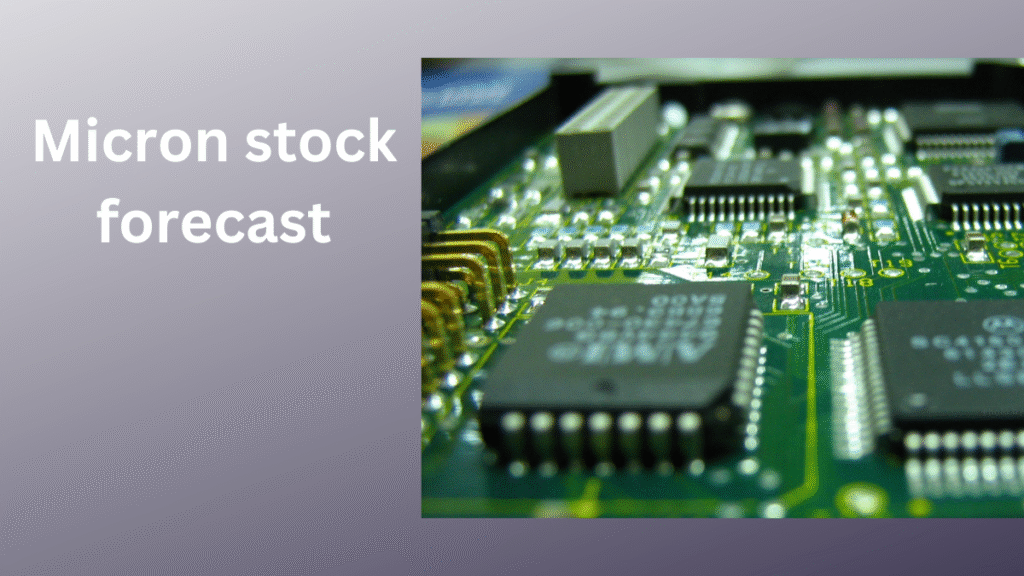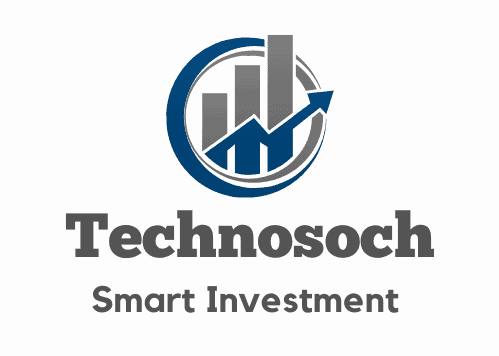Micron stock forecast
📊 Current Basics (June 2025)
| Metric | Value |
|---|---|
| Market Cap | ~$140 B ([finance.yahoo.com][1]) |
| P/E Ratio (TTM) | ~22.9× |
| Return on Equity | ~13.1% |
| Price-to-Book (P/B) | ~2.8× |
Micron is a top producer of memory and storage chips, mostly DRAM and NAND. It serves a wide variety of sectors, from data centers to cars. MU is in a good position since it has good profitability and a robust balance sheet (current ratio ~2.75×) ([stockanalysis.com][2]).
🔮 Predictions for MU Stock
Micron stock forecast 2025
Strong demand for AI and data centers leads to a 38% increase in sales in the second quarter. Higher margins help decrease inventory drag.
Goal for 2025: $140
Micron stock forecast 2026
AI-optimized memory products start to scale up in volume, and factory expansion makes the company more self-sufficient.
Goal for 2026: $175
Micron stock forecast 2027
Next-gen HBM and automotive DRAM are widely used by OEMs. Long-cycle demand is driven by digital change.
Goal for 2027: $210
Micron stock forecast 2028
1α node manufacturing begins at a low cost; market share in servers and AI grows.
Goal for 2028: $250
Micron stock forecast 2029
The adoption of PNV-ready DDR6 speeds up, and EPS growth is high.
Goal for 2029: $290
Micron stock forecast 2030
First memory execution in AI processors and automotive systems; ongoing license income.
Goal for 2030: $340
Micron stock forecast 2031
The move to 1β and 1γ nodes was successful, and edge-memory products are starting to be rolled out.
Goal for 2031: $390
Micron stock forecast 2032
Supply chain resilience lowers volatility, and operational leverage raises ROE.
Goal for 2032: $450

Micron stock forecast 2033
Weak supply from competitors gives you more leverage over prices; memory prices go up in the middle of the cycle.
Goal for 2033: $520
Micron stock forecast 2034
Entry into embedded memory for the markets for 5G and smart devices.
Goal for 2034: $600
Micron stock forecast 2035
Strategic joint venture for memory in cars; high profit content per car.
Goal for 2035: $700
Micron stock forecast 2036
Stable free cash flow of more than 20% and no more capacity problems.
Goal for 2036: $850
Micron stock forecast 2037
AI at the edge and optical memory divisions push up incremental multiples.
Goal for 2037: $1,000
Micron stock forecast 2038
Memory-as-a-Service is now available for AI infrastructure in businesses.
Goal for 2038: $1,200
Micron stock forecast 2039
The spin-out of the sensor/memory hybrid technology has a lot of potential.
Goal for 2039: $1,400
Micron stock forecast 2040
Micron becomes the world’s leading AI-chip memory ecosystem participant with a return on investment (ROIC) of 10%.
Goal for 2040: $1,600
📈 Yearly Price Goals
| Year | Target (USD) |
|---|---|
| 2025 | $140 |
| 2026 | $175 |
| 2027 | $210 |
| 2028 | $250 |
| 2029 | $290 |
| 2030 | $340 |
| 2031 | $390 |
| 2032 | $450 |
| 2033 | $520 |
| 2034 | $600 |
| 2035 | $700 |
| 2036 | $850 |
| 2037 | $1,000 |
| 2038 | $1,200 |
| 2039 | $1,400 |
| 2040 | $1,600 |
🚀 Important Factors for Growth
- AI/data-center tailwinds—the need for memory is going up ([investors.com][3], [gurufocus.com][4]).
- Leadership in next-gen DRAM/NAND nodes with high-margin manufacturing.
- Diversification into streams for cars, edge computing, and licensing.
- A healthy balance sheet and capital returns help R&D and growth.
- Vertical integration makes a business more resilient and helps it maintain its margins.
- Cyclical memory upturns make profits and equities gains bigger.
⚠️ Things to Think About
- Memory pricing volatility—inventory fluctuations may happen fast.
- Geopolitical tensions and export regulations make things risky.
- Heavy capex cycle—if demand drops, profitability might fall behind.
- Competition from Samsung, SK Hynix, and Chinese companies.
- Macro downturns might slow down memory growth fueled by technology.
📝 The End
Micron is at a key point right now, with good fundamentals and a lot of demand for AI and memory. If MU stays in charge of advanced nodes and moves into related markets, it might reach $1,600 by 2040. But it will be very important to follow through on capital expenditure efficiency, price discipline, and geopolitical hedging.
